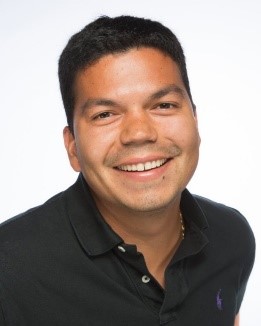This presentation is sponsored by ITS-Davis’ partnership with the Pacific Southwest Region University Transportation Center.
Title
Assessing impacts of transport innovations – Electrification Automation, and Sharing – through ride-hailing research
Time
1:40 p.m. – 3:00 p.m
Location
1605 Tilia, Room 1103, West Village
Abstract
Three main transport innovations – electrification, automation, and sharing – have the potential to disrupt the landscape of passenger mobility and may significantly impact urban environments. The anticipated effects of these emerging technologies on users, drivers, and our communities can be assessed through the lenses of new mobility services such as ride-hailing (e.g. Uber and Lyft). Ride-hailing datasets enable us to analyze the impacts of future electric, automated, and shared mobility options as there are many similarities and analogies between the former and latter.
Using ride-hailing data analytics both from a system perspective and a behavioral emphasis of its users, the following can be performed with regards to electrification: i) initial assessment of electric vehicles (EV) drivers’ market penetration; ii) evaluation of EV mileage range to support total vehicle miles traveled, including passenger travel and deadheading; and iii) exploration of charging infrastructure needed to reduce driver anxiety. Travel behavior insights from ride-hailing users serve as a precursor to utilization of autonomous vehicles (AVs) including the reasons to switch from previous transport modes (e.g., time use, time savings, cost, parking, avoid driving after drinking), changes in car ownership, parking utilization rates, and modality style changes (e.g. from car-oriented lifestyles to multimodal users, from transit users to ride-hailing services, etc.). In addition, the zero occupancy vehicle (ZOV) miles from AVs are approximated through estimation of deadheading miles of ride-hailing under a scenario of autonomous ride-hailing fleets. Finally, data describing real usage patterns and matching (instead of only requests) of ride-hailing pooling services such as UberPool and Lyftline allows us to gain insights into shared mobility through conducting descriptive analysis of the vehicle occupancy and modality style changes (from car-oriented lifestyles to multimodal users).
Alejandro will share insights and results from his PhD dissertation where he used an empirical and anthropological data collection method by driving for both Uber and Lyft to assess the transportation impacts of ridesourcing in Denver, CO. For example, a future shared autonomous vehicle system might provide the ride-hailing vehicle occupancy average of 1.36 passengers per ride with 40.8% ZOV; equating to approximately 0.80 passengers per ride (which is lower than a single occupancy vehicle trip). He will also share his current ride-hailing research as a postdoctoral researcher with the National Renewable Energy Laboratory (NREL) including vehicle ownership changes at a national scale, and analysis of larger ride-hailing datasets for several U.S. cities to assess early impacts of ride-hailing and to underline users’ mobility trends and drivers’ choices. A combination of various future scenarios through ride-hailing is important to assess a more complete research.
Biographical Sketch
 Alejandro Henao: Dr. Henao is a postdoctoral transportation researcher with the National Renewable Energy Laboratory (NREL). He holds a PhD from the interdisciplinary sustainable urban infrastructure program at the University of Colorado. Realizing the difficulty in obtaining data directly from Uber and Lyft, Alejandro employed an anthological and survey-based approach by conducting research while driving for both companies. His doctoral dissertation analyzes the impacts of ridesourcing on several areas of transportation. Alejandro is a recipient of the Dwight Eisenhower Fellowship and additional fellowships from the National Science Foundation. He has experience in teaching, mentoring, and research collaboration. He has published and presented multiple research studies in peer-reviewed journals and conferences. Dr. Henao current research focuses on the synergies between transportation and energy, with an emphasis on data collection strategies and innovation to answer key research questions including the transportation/energy impacts of ride-hailing and future transportation revolutions. He is interested and motivated in research and work that leads to the creation of better places including transportation innovations opportunities, mode choice, transit use, car-dependency reduction, vision zero, and equity.
Alejandro Henao: Dr. Henao is a postdoctoral transportation researcher with the National Renewable Energy Laboratory (NREL). He holds a PhD from the interdisciplinary sustainable urban infrastructure program at the University of Colorado. Realizing the difficulty in obtaining data directly from Uber and Lyft, Alejandro employed an anthological and survey-based approach by conducting research while driving for both companies. His doctoral dissertation analyzes the impacts of ridesourcing on several areas of transportation. Alejandro is a recipient of the Dwight Eisenhower Fellowship and additional fellowships from the National Science Foundation. He has experience in teaching, mentoring, and research collaboration. He has published and presented multiple research studies in peer-reviewed journals and conferences. Dr. Henao current research focuses on the synergies between transportation and energy, with an emphasis on data collection strategies and innovation to answer key research questions including the transportation/energy impacts of ride-hailing and future transportation revolutions. He is interested and motivated in research and work that leads to the creation of better places including transportation innovations opportunities, mode choice, transit use, car-dependency reduction, vision zero, and equity.
Thank you for your interest in the UC Davis Institute of Transportation Studies. Subscribe today to keep up with the latest ITS news and happenings.
